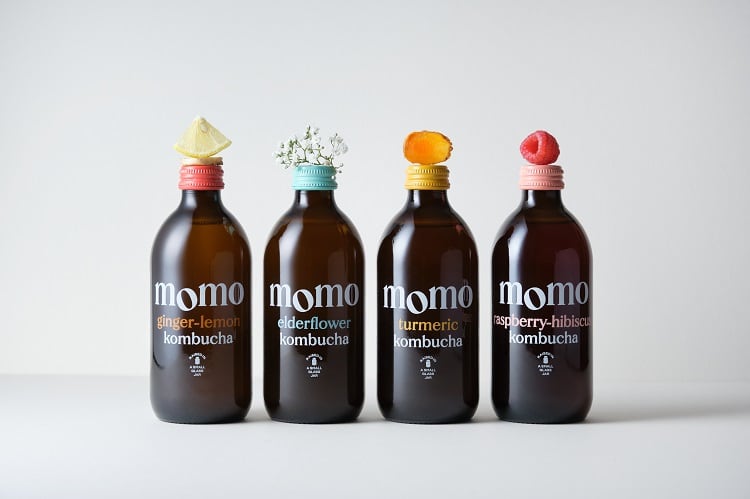The gut health trend has long been on an upwards trajectory. What started out as a group of niche products relegated to small independent health stores has since spilled into the mainstream, and food and drink companies are taking notice.
But in Europe, those same food and drink companies – now innovating with probiotics and prebiotics for microbiome health – are restricted by what they can say on-pack. Since the terms ‘probiotics’ or ‘prebiotics’ can’t legally be carried on food and drink labels, how can brands best communicate potential gut health benefits?
EU has one of the strictest health claims regulations globally
Since 2012, there has been a de facto ban on the use of the terms ‘probiotics’ and ‘prebiotics’ for food products in the European Union. This is because according to the European Commission, these terms are considered health claims in their own right.
No food or drink product therefore can make specific claims related to specific probiotic or prebiotic strains. Exceptions to the rule include strains of Lactobacillus and Bifidobacterium bacteria (the most commonly used probiotics) which are permitted for fermented dairy and lactose intolerance products.
Overall, the EU is now considered to have one of the most, if not the most, strict health claims regulations globally.

But regulatory restrictions do not spell the end for pre- or probiotics. According to data from Lumina intelligence – owned by FoodNavigator publisher William Reed – interest in the term ‘probiotic’ is on the rise in several European countries, including France, Germany, Spain and the UK. “It clearly highlights that an increasing number of people are aware of probiotics and are searching for related knowledge,” explained director of insights Ewa Hudson.
Restrictions also haven’t put an end to pro- and prebiotic innovations in food and drink, but have forced brands to think outside the box when communicating potential health benefits.
What are pro- and prebiotics?
According to the World Health Organization (WHO), probiotics are live microorganisms which when administered in adequate amounts confer a health benefit to the host.
The WHO defines a prebiotic as a selectively fermented ingredient that results in specific changes in the composition and/or activity of the gastrointestinal microbiota, thus conferring benefit(s) upon host health.
Getting creative with brand names and ‘probiotic’ language
Throwing the spotlight on probiotics, an obvious way brands can communicate the benefits of these microorganisms is by getting creative with brand and product names. In so doing, they can indicate to a consumer that probiotics have benefits, but without explicitly making a health claim.
Manufacturers often play on the word ‘probiotic’ in their brand or product names, using terms such as ‘bio’, ‘cultures’, ‘biocultures’, ‘biotics’ and ‘strains of live bacteria’. UK gut health drinks, snacks and powder maker Biomel, for example, using the term ‘bio’ within its brand name. Its products also carry the tag line ‘Love Your Gut’.
Also in the UK, a tie-up between personalised nutrition start-up Zoe and retailer Marks & Spencer has seen a product called Gut Shot come onto the market. The daily shot contains more than ‘five billion live cultures from 14 strains of bacteria’.
Some probiotic health claims have been approved by EFSA
Although many probiotic health claim applications have been submitted to EFSA for approval, very few have been received the regulatory nod.
Winclove Probiotics is an obvious exception. The Dutch probiotic producer was successful in its health claim application for proprietary probiotic Propioniacterium freudenreichii W200. By upgrading the fermentation process of the strain, the bacterium now contains adequate amounts of vitamin B12 to make an EFSA approved health claim.
Permitted claims now include: Vitamin B12 contributes to normal energy-yielding metabolism; normal functioning of the nervous system, normal function of the immune system, and reduction of tiredness and fatigue, amongst others.
It should be noted these claims do not relate to the function of the probiotic itself.
Another way brands are thinking creatively is by reformulating products to include a vitamin or mineral attached to a gut health-related claim. Calcium, for example, supports the normal functioning of digestion enzymes. That’s an authorised health claim in the EU.
So a brand could feasibly include added calcium in the formulation, carry an image of the gut on pack, and link it to the calcium health claim back-of-pack. In this case, the brand would be claiming the calcium has a gut health benefit, rather than any of the pro- or prebiotics that may be present.
‘We want to say our product is good for the gut, but can’t’
Some categories of food and drink products already benefit from positive gut health associations.
Kombucha – a fermented, lightly effervescent sweetened black tea drink – is one such example. Being naturally fermented, kombucha contains probiotics which come from a symbiotic colony of bacteria and yeast (SCOBY).
But in the EU (and the UK), kombucha brands can’t explicitly say their products contain probiotics. UK-based kombucha brand Momo, for example, describes its product as containing ‘live cultures’.
In an ideal world, the brand would make specific gut health claims on-pack, co-founder Josh Puddle told FoodNavigator. “We would like to state that our product is ‘good for the gut’, but aren’t allowed to.”
Instead, Momo draws attention to other characteristics of the product. “We focus on the fact that Momo is raw and completely unfiltered, similar to a homemade kombucha. Most of our drinks understand that authentic kombucha is probiotic so we don’t have to use the word.”
“We focus on our authenticity and hope consumers understand that most commercial kombuchas are not authentic,” he continued.
“We clearly state that we are ‘always organic’ and ‘completely unfiltered’. We also state it is ‘raw’ so must be stored in the fridge. We steer clear of health benefits on-pack because of regulation.”
Change is afoot for probiotic health claims
Although Momo adheres to health claims regulations, the co-founder told us ‘a lot’ of brands fall short.
This is particularly evident online, where brands have less to lose if an enforcement body cracks down. “There’s a difference between marketing online and on-pack,” Brian Kelly, partner and head of European Food and Beverage Practice at law firm Covington told this publication. “The law is the same, but if an enforcement body tells a manufacturer to remove a claim, it can easily be taken off a website.
“If the claim is on-pack, manufacturers may need to recall the product. Brands tend to take a risk-based approach to marketing.”

On the regulatory side, however, change is afoot. Although EU authorities continue to restrict the term ‘probiotics’ on food labels, a growing number of Member States are taking matters into their own hands.
To date, France, Spain, Denmark, Italy, Greece, Poland, the Czech Republic, the Netherlands, and Bulgaria are now allowing the term ‘probiotic’ to be used on food supplement labels. Russia and Italy have long permitted use of the term, and Switzerland allows for restricted use.
“This suggests there’s a relaxation in regulation – at least at a Member State level,” Kelly told us. “Possibly people hope there would be a domino effect, with more and more European countries following suit, and the European Commission rethinking its stance.”
Commission asked to explain itself on probiotic law
But the most recent development giving hope to the probiotic industry comes in the form of a formal complaint against the Commission submitted to the European Ombudsman.
The complaint comes from a business association representing companies manufacturing products that contain probiotics. The trade body takes issue with probiotics being considered a ‘health claim’ under EU law and therefore requiring prior authorisation by EFSA. To date, no health claim on probiotics has been authorised by EFSA due to a lack of sufficient evidence demonstrating health benefits.
The complainant contents the Commission has not satisfactorily addressed the issues it has raised, explained Ombudsman Emily O’Reilly in a letter to Commission president Ursula von der Leyen, “in particular in view of scientific evidence and recent market data it submitted”.
The Ombudsman has opened an inquiry to investigate how the Commission has replied to some of the complainant’s concerns. To advance the enquiry, O’Reilly has requested the Commission explain ‘in more detail’ why it believes probiotics should be systematically be considered a health claim and not a nutrition claim.
The enquiry is ongoing.





